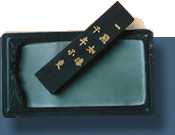|
|
 |
|
|
© Maria BugrovaSir Robert HartThe abstracts from report "The role of Great Britain in the "opening" process of China by the West in the 2nd part of the XIX century" addressed to the International Congress of Asian and North African Studies (ICANAS-XXXVII), 2004 R.Hart was appointed as an I.G. of Maritime Customs instead of G.N.Lay in 1863. R. Hart began his career as British plenipotentiary in China and finished at the post of Inspector General. This fact seems unique in the international diplomatic practice. The Englishman served the Chinese Government, established custom office in London independently of British Ministry of Foreign Affairs, controlled all affairs of foreign powers’ policy in China. At the same time he didn’t make light the interests of China. It influenced positively on the Great Britain status. The custom relations between London and Peking were very useful because where was not necessity to inquire information in Ministry of Foreign Affairs of Great Britain. Thus, R.Hart had its own information sources and successfully connected with leaders of English firms and their representatives in Peking through its agent in London. Besides the custom’s affairs he was dealt with the problems of education, industrial development of China, loans, had musical band, was aware of foreign missionary activity, and controlled problems of law and courts. He wrote in the February of 1883: “I find I have not got half the work done, public or private, which I had “plotted out” for the shut up season: I wonder why? Am I too greedy – wanting too much done, or too lazy – not working enough, or too long-winded – wasting too much time on details? I sometimes fear it is this last, but my “houses” are often so strangely planned and the materials to be used so new in their combination, that I have not only to sketch out the outlines but must also do the painting and pointing". In April of 1884 he wrote that “have been trying these last 25 years to keep military and naval appointments in China, if not in English hands, at least from going into hands likely to exert an influence hostile to English interests, and in that way likely to work badly for China in the long run. Had I been an American, Frenchman of German, and worked as constantly to put China into American, French or German hands, I should have achieved some startling success and China would have followed my heartily at first and would have been supported vigorously by the country concerned; but such a policy would from the foreign side have been directed or operated against English interests in the East, and China would either have waxed so strong without increasing in wisdom, as to have become generally dangerous, or have a tool in the hands of a designing statesman far away… No foreign power is yet able to manipulate China at pleasure. In this way I have specially kept the infant navy from non-English leadership, and that too, while there were French, German and American officers placing not only their qualities as instructors, but their swords for fighting at the service of the great Li Hung Chang”. R.Hart’s distinctions:
|
 Robert Hart (1908)  Robert Hart  Lady Hart  R.Hart at the office  R.Hart Family Herald  Fig. 6. Sir Robert Hart's statue (Shanghai) designed by Charles Guernier of Paris. The epitaph written by President Eliot of Harvard on the bronze plaques states: "Inspector-General of the Chinese Maritime Customs. Founder of the Chinese Lighthouse Service. Organiser and Administrator of the National Post Office. Trusted Counsellor of the Chinese Government. True friend of the Chinese People. Modest, Patient, Sagacious and Resolute. He overcome Formidable Obstacles, and Accomplished a work of Great Beneficence for China and the World." |

|
© Copyright Bumali Project, 2007
All rights reserved bumali2000@yahoo.ca Last update: 2020.12.05 |